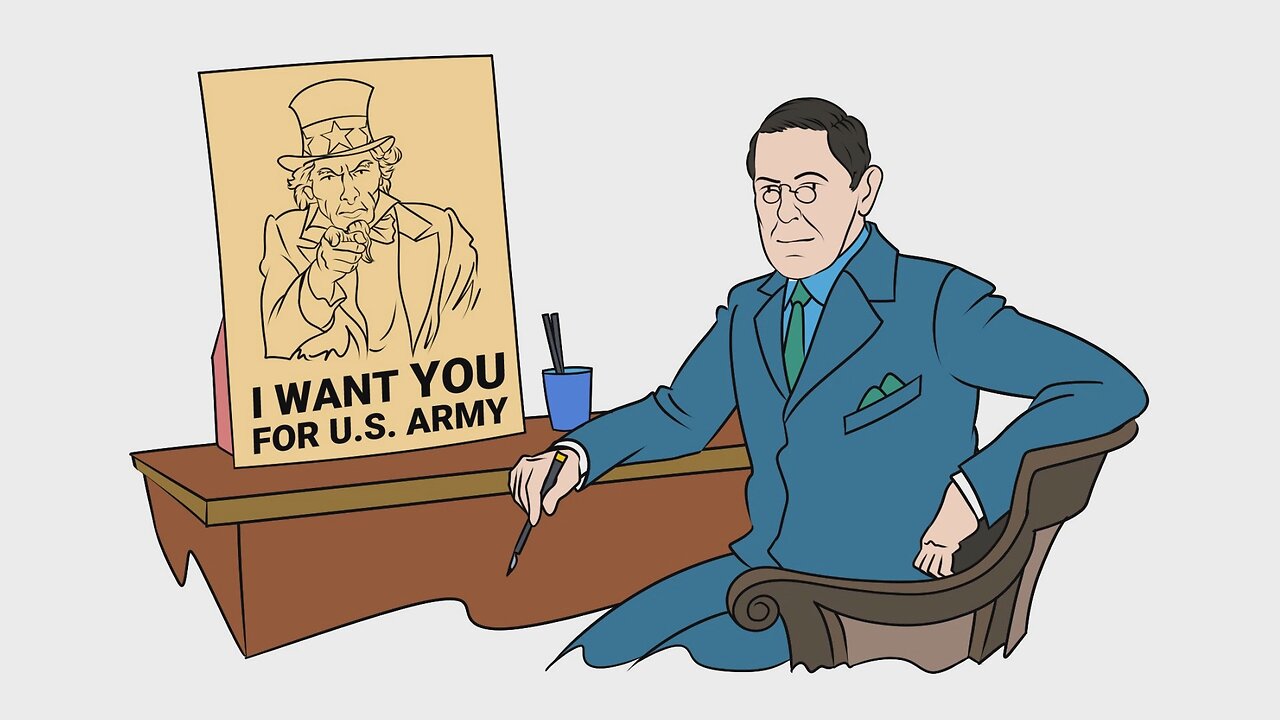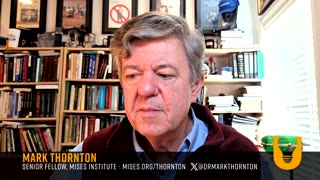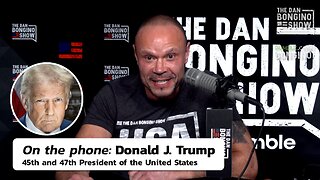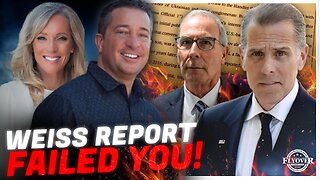Premium Only Content

Propaganda
During World War I, Randolph Bourne described war as “the health of the state,” observing that “the nation in wartime attains a uniformity of feeling, a hierarchy of values culminating at the undisputed apex of the State ideal.”
The war opened in 1914, and most Americans wanted no part in it. Woodrow Wilson’s 1916 reelection slogan was “He Kept Us Out of War,” which proved instrumental to his victory. Yet he secretly wanted to join the fight, and within months of winning the election, Wilson convinced Congress to declare war on Germany.
As a Progressive, Wilson believed social problems should be solved by a strong, centralized, and active state. The consolidation of state power is most easily secured during war, and Bourne saw this in Wilson’s use of wartime propaganda.
“Propaganda” refers to the biased presentation of information to build support for a political agenda by eliciting an emotional response. Wilson made propaganda a state function, establishing a propaganda department—the Committee on Public Information—headed by George Creel. “It was Creel’s idea,” claimed Wilson’s war secretary, “to have, in lieu of a Committee on Censorship, a Committee on Public Information for the production and dissemination of the truth about the war.”
In reality, the agency helped suppress antiwar literature, but its primary function was the creation of propaganda using modern marketing techniques. The late nineteenth century saw the emergence of professional advertising firms whose ads targeted consumer psychology by emphasizing imagery and narrative, rather than product information and price.
Pictorial advertisements presented idealized images of the consumer and introduced the earliest brand mascots, such as the Quaker Oats man and Mr. Peanut, shortly prior to World War I. The Committee on Public Information copied these tactics. Enlistment posters featured heroic depictions of soldiers and monstrous representations of the enemy. Most famous, however, is the poster of Uncle Sam saying, “I want YOU for the U.S. army,” establishing America’s brand mascot.
Narrative advertisements appealed to consumer emotions. Prewar ads emphasized progress and modernity. The Natural Food Company, for example, promoted the first snack “baked by electricity,” which they called “electric biscuits,” or “Triscuits.”
But wartime propaganda introduced new themes, such as patriotism. The slogan “Save the Wheat and Help the Fleet,” made rationing a way to support the troops. War bonds were marketed as “Liberty Loans,” with posters that encouraged citizens to buy them by asking, “Are you 100% American? Prove it.” In contrast, fabricated accounts of German brutality invoked fear and outrage.
The Committee on Public Information was dissolved after the war, but its propaganda techniques were utilized and adapted to new mediums during World War II. In the 1940s, wartime propaganda not only encouraged support for the war, but also for the growing connection between the state and industry, which President Dwight Eisenhower dubbed the “military-industrial complex.”
______________________________________
Want to learn more?
For more animated content, check out Economics for Beginners at https://BeginEconomics.org.
Check out the latest Mises Wire articles on foreign policy and war: https://mises.org/topics/war-and-foreign-policy
Anatomy of the State by Murray Rothbard is a great mini-book on the true nature of the state: https://mises.org/anatomy
The Betrayal of the American Right by Murray Rothbard focuses on the history of the modern conservative movement, and the role it played in aggressively escalating America's foreign policy in the 20th century: https://mises.org/betrayal
Wall Street, Banks, and American Foreign Policy by Murray Rothbard is a fiery monograph that employs "power elite" analysis to understand the relationship between money, power, and war: https://mises.org/library/wall-street-banks-and-american-foreign-policy-0
A Century of War: Lincoln, Wilson and Roosevelt by John V. Denson is an extensive look at how the twentieth century became the bloodiest in all history: https://mises.org/library/century-war-lincoln-wilson-and-roosevelt-0
A Foreign Policy of Freedom by Ron Paul offers a positive view for an American foreign policy would look like if it stayed true to its founding principles: https://mises.org/library/foreign-policy-freedom
-
 42:59
42:59
Mises Institute
12 days ago $0.04 earnedWhy Smart People Are Rightly Confused About Tariffs | Mark Thornton
3652 -
 3:07:17
3:07:17
Alex Zedra
6 hours agoLIVE! New Game | Exorcism!??
16.5K -
 6:00:06
6:00:06
SpartakusLIVE
9 hours agoThe Conqueror of Corona || Delta Force LATER
41.1K -
 2:17:30
2:17:30
barstoolsports
12 hours ago$250k Winner Revealed With Final Votes And Reunion | Surviving Barstool S4 Finale
105K8 -
 2:05:49
2:05:49
Kim Iversen
9 hours agoTikTok Ban BACKFIRES: Millions Flee To New App Showing The REAL China
98K120 -
 1:35:12
1:35:12
Glenn Greenwald
11 hours agoCNN And Jake Tapper In Deep Trouble In Defamation Lawsuit: With Jonathan Turley; TikTok Ban, Trump's China Policy, And More With Arnaud Bertrand | SYSTEM UPDATE SHOW #390
96.1K54 -
 12:24
12:24
Dan Bongino Show Clips
12 hours agoPresident Trump Full Interview - 01/16/25
124K296 -
 1:27:39
1:27:39
Man in America
12 hours agoBig Pharma's Deadliest Lie is Being EXPOSED to the Masses w/ Jonathan Otto
63.4K22 -
 1:40:08
1:40:08
Precision Rifle Network
1 day agoS4E2 Guns & Grub - Training Vs. Competition
31.3K -
 58:27
58:27
Flyover Conservatives
1 day agoGarrett Ziegler Breaks Down Special Councilor’s Report on Hunter Biden. Insights for Trump’s Top Picks. | FOC Show
58.9K3